
Let's Rise to the Challenge of Atopic Dermatitis
The START-UP Study is evaluating the safety and effectiveness of a study medicine for children with atopic dermatitis.
The START-UP Study is evaluating the safety and effectiveness of a study medicine for children with atopic dermatitis.
Your child may be able to participate in the START-UP Study if they:
Your child may be able to participate in the START-UP Study if they:
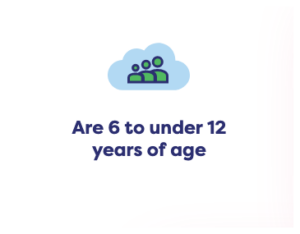
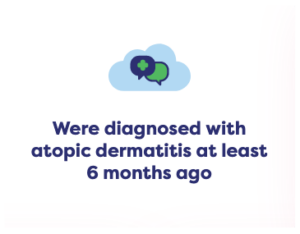
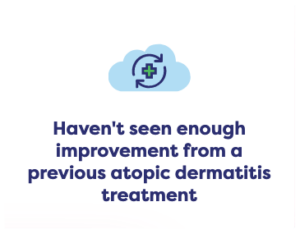
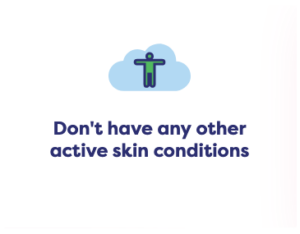

ABOUT THE START-UP STUDY
The START-UP Study is evaluating the safety and effectiveness of a study medicine for children with atopic dermatitis. The study medicine has already been tested in both adults and adolescents with atopic dermatitis—researchers want to see if it could be safe and effective for children from 6 to 12 years of age. After establishing initial eligibility, study participants will be assigned randomly (by chance) to receive either the study medicine (a tablet taken by mouth) or the comparator drug, a medicine that’s already been tested in children in this age group with atopic dermatitis (which will be given as an injection under the skin). Your child will be able to take the study medicine as an oral solution if they cannot swallow a tablet. Participants who have previously taken the comparator drug and have not seen improvement will be automatically assigned to receive the study medicine.
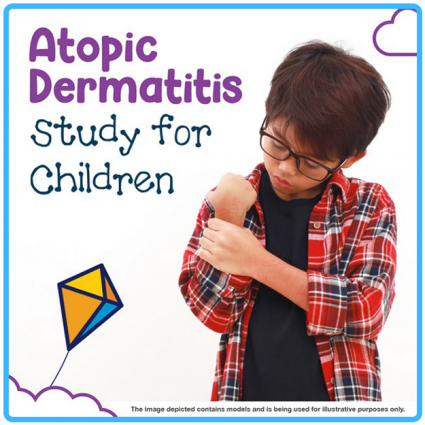
Participants taking the study medicine may also be asked to participate in an optional substudy (a study within the study) to test how the study medicine impacts the effectiveness of certain vaccines, which will be given as injections into the skin. Only children already scheduled to receive these vaccines from another licensed healthcare provider are eligible to participate in the substudy.
The START-UP Study may last up to 169 weeks (about 3 years) and will consist of up to 22 visits, 1 of which may be completed over the phone.
A clinical trial is a carefully designed research study involving human volunteers to investigate the safety and effectiveness of a new drug or treatment. Clinical trials are essential for evaluating the benefits and risks of medical interventions, ultimately informing healthcare decisions and regulatory approvals.
As a clinical trial or observational study participant, your responsibilities and what you will be required to do can vary depending on the study, its objectives, and the phase of the trial.
Some common activities and responsibilities you may encounter as a participant include: diagnostic tests, treatments, procedures, doctor visits, dietary changes, exercise and/or other lifestyle changes. Observational studies often involve minimal effort, such as completing questionnaires, sharing test results, maintaining a diet or exercise log.
Joining a clinical trial can provide access to cutting-edge treatments, close medical monitoring, and an opportunity to contribute to medical knowledge. Participants may experience improved health outcomes and specialized care while potentially receiving compensation for volunteering.
Clinical trials are designed with a strong emphasis on the safety of participants, and multiple safeguards are in place to minimize risks, including careful study design, oversight by institutional review boards and routine monitoring of study data by independent experts. Researchers must inform participants of the risks, benefits and/or side effects they discover.
Yes, you can drop out of a clinical trial study at any time, and you have the right to do so without facing any penalties or consequences. This is often referred to as "withdrawal of consent."
Voluntary participation is a fundamental principle of clinical research. You are not obligated to continue in a trial if you no longer wish to do so.
Determining your eligibility to participate in a clinical trial involves a thorough evaluation of specific eligibility criteria set forth by the study's researchers and sponsors. The criteria help define the patient population being studied and are designed to protect the safety of participants in the trial.
Providing accurate information about your medical history and health status is crucial for your safety and the integrity of the research. If you are not eligible for one trial, you may still be eligible for other trials in the future, so it's worth exploring your options if you are interested in participating in clinical research.
